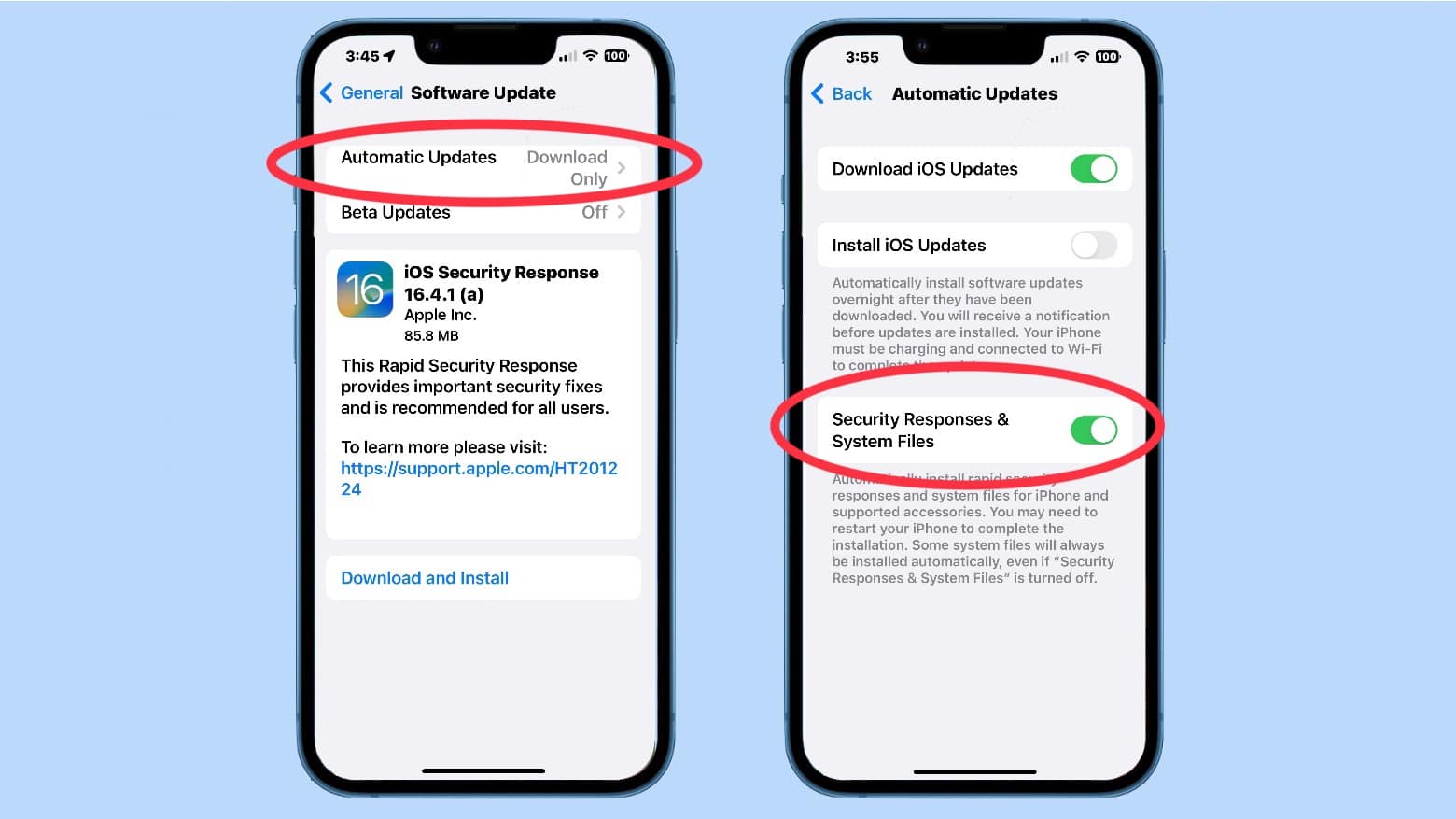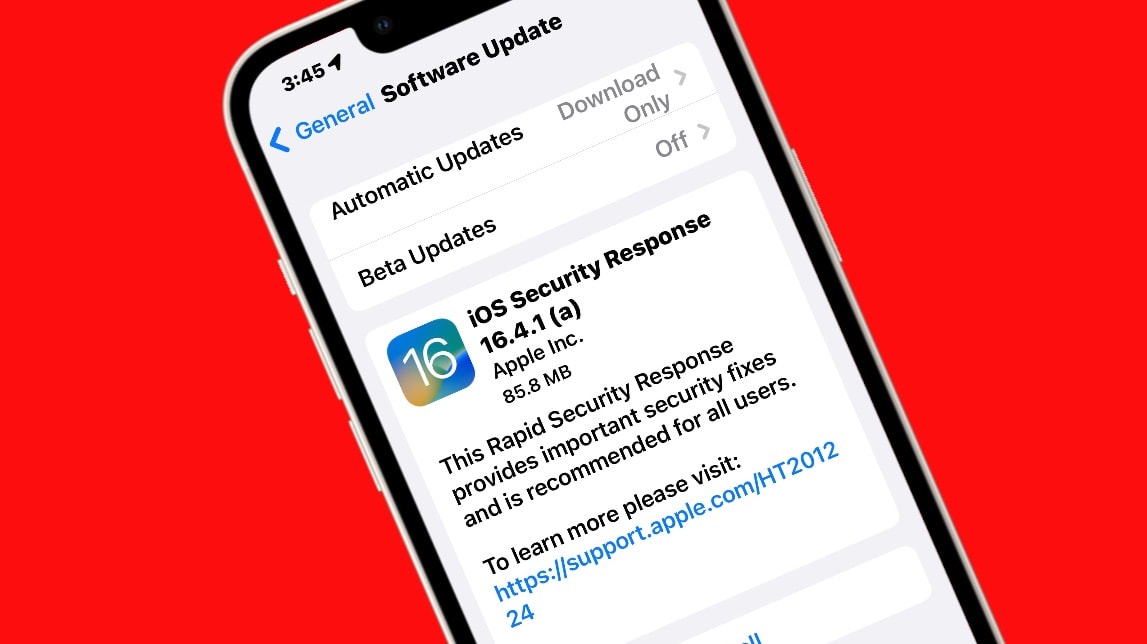Apple began rolling out a Rapid Security Response to fix urgent security problems in iOS 16.4.1, macOS 13.3.1 and iPadOS 16.4.1.
If the term is unfamiliar, this is the first time these patches have ever been released. They allow Apple to quickly fix security problems without requiring a full OS update.
Better and faster
It’s not unusual for Apple to introduce software updates to go out that are little more than security patches. iOS 16.1.1 is a good example. But Apple created a better system that lets it introduce security patches more quickly.
It calls these Rapid Security Responses, and they’ve been in testing for months. Testing is now over, and iPhone, iPad and Mac users can now install the first one.
Just so there’s no confusion, these are patches that will deal with specific security problems. There will never be feature changes included.
Rapid Security Response: Get patching

Photo: Ed Hardy/Cult of Mac
By default, Apple devices are set up to automatically install any new Rapid Security Response. You will be asked when you want to restart your computer to fully apply the patch, if necessary.
To check on this setting on iPhone or iPad, go to Settings > General > Software Update > Automatic Updates, then make sure that Security Responses & System Files is turned on.
To do the same on Mac, open the Apple menu > System Settings. Click General in the sidebar, then click Software Update on the right. Click the Show Details button next to Automatic Updates, then make sure that Install Security Responses and system files is turned on.
After a Rapid Security Response has been applied, a letter is appended to the software version number. For example, iPhone users will see iOS 16.4.1 (a).







